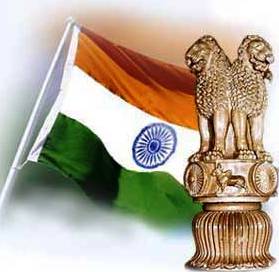
The democracy is a system where the people have a full control over the government through their representatives and have a full right to know how the system is working. The accountability of the government to the people and the transparency in its functions, are the two most important mechanisms which make a government responsible to the people and through them the people may keep watch over the functioning of the government. A well developed and mature democratic system, therefore, is that where the mechanisms are evolved to make the government accountable to the people and to ensure transparency in its functions.Otherwise the democracy is only for the namesake and not real.
Three organs of the government-the legislature, the executive and the judiciary-must completely be accountable to the people and their functions must be transparent to everyone. After independence we adopted the democratic system but due to many reasons our democracy had a number of drawbacks that we have been trying to rectify in the course of time. The Right To Information Act is one of the legal measures that tries to make an effort to ensure the governmental accountability by providing the people the right to information about the happenings in the government departments and institutions.
The Judiciary is one of the organs of the government and its duty is to ensure the compliance of the law by interpreting its provisions and deciding the disputes over the application of law.The Supreme Court, as the highest judicial court in the country,has a pious obligation to facilitate and ensure the application of the provisions of the Right to Information Act so that the government institutions may be made accountable to the people and the scourge of corruption,dishonesty and inefficiency can be checked effectively. But the Chief Justice of India has been trying to keep himself and the supreme Court of India out of the purview of the RTI Act and also made requests to the Prime Minister to get him exempted from the provisions of the RTI Act.
This is a pity that the institution that has been entrusted with the responsibility to interpret the law and ensure its implementation is itself trying to subvert it.The Right to Information Act is a law passed by the Parliament that gives every citizen a right to know about the activities of the people working in the governmental institutions.This Act does not provide for any exemption to the Chief Justice or any judge of the Supreme Court from its application. But the Supreme Court C J was trying to explain that the RTI Act will not apply to his office.The Supreme Court was unwilling even to share the information about the appointment of its Judges.
What is wrong in disclosing the qualifications of judges who are fit to be appointed as the judge of the Supreme Court if all the appointments, including the Prime Minister’s, are made openly.Fortunately every thing is not wrong in our country.The Delhi High Court, where the the Supreme Court appealed against the order of the Chief Information Commissioner bringing the CJI under the RTI purview, has decided that the Chief Justice of India is no exception for the application of the RTI Act. After the decision of the Delhi High Court, it was reported in the Times of India in its January 13,2010 issue that the Supreme Court is considering to make an appeal to itself against the decision of the Delhi High Court.This is going to be another anomaly and the violation of the Rules of Natural Justice.
How the Supreme Court can hear an appeal against the Delhi High Court which has decided a case in which the Supreme Court itself is a party?It is obvious that if the Supreme Court will decide the appeal,it is more likely that it will uphold its earlier stand of keeping itself out from the purview of the RTI Act.



